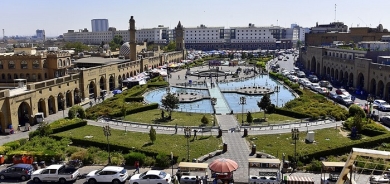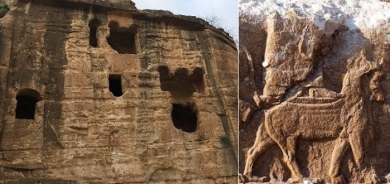Taliban says it controls '85 percent' of Afghan territory, made no ceasefire promise to US

The Taliban said Friday it now controls 85 percent of Afghanistan's territory and that the group made no promise to the US to refrain from attacking Afghan administrative centres, as its militants mount an offensive amid a final pullout of US troops. The group's territorial claims cannot be independently verified.
At a press conference in Moscow, Taliban negotiator Shahabuddin Delawar said that "85 percent of Afghanistan's territory" is under the group's control, including some 250 of the country's 398 districts.
Delawar also said the Taliban is free to attack administrative centres in Afghanistan as it made no promise to the US to leave them alone. But, he added, the group would not take provincial capitals by force.
The Taliban negotiator was referring to a February 2020 US-Taliban agreement aimed at enabling US troops to withdraw from Afghanistan after two decades of bloodshed, now known as “America’s longest war” in the US. The Afghan government was not party to the agreement or involved in the talks leading up to it.
The three-page agreement lays out a timeline for the withdrawal of US and foreign troops, as well as guarantees that prevent the use of Afghan soil by groups against US security interests. But it includes no commitment to a ceasefire, leaving it as an “item on the agenda of [future] intra-Afghan dialogue and negotiations”.
Friday’s press conference in the Russian capital comes as an intense Taliban offensive in northern and western Afghanistan put the fledgling Afghan air force under severe strain as the lightning operation overwhelmed government forces.
More than 1,000 Afghan troops fled into Tajikistan this week after a blistering Taliban offensive in northern Afghanistan.
Afghan authorities have vowed to retake all the districts lost to the Taliban and deployed hundreds of commandos to counter the insurgents' offensive in the north.
The fighting in the north has forced Moscow to close its consulate in the city of Mazar-i-Sharif, the capital of Balkh province and one of Afghanistan's largest and safest urban centres near the border with Uzbekistan.
Afghans opposed to the Taliban, including regional and ethnic militia groups, have also vowed to resist, raising the prospect of the country's descent into civil war.
At the Moscow news conference, three Taliban officials tried to signal that they did not pose a threat to the wider region, particularly Russia’s interests in Central Asia.
Earlier Friday, Russian foreign ministry spokeswoman Maria said Moscow is ready to take "additional measures" to "prevent aggression" on its ally Tajikistan and called on all sides in the Afghan conflict to "avoid spreading tensions outside of the country."
Afghans alone should determine their future, says Biden
The latest Taliban claim came hours after US President Joe Biden announced the US mission in Afghanistan would end on August 31, days before a previously announced September 11 pullout timed to coincide with the 9/11 attacks.
“We are ending America’s longest war,” said Biden. “The status quo is not an option,” said the president, who was the strongest voice against a US military surge in Afghanistan while he served as vice president in the Obama administration.
Biden said the Afghan people alone should determine their future. He made no mention of the Afghan government's exclusion from the US-Taliban negotiations.
The US president did acknowledge his uncertainty about the future, admitting, "The likelihood there is going to be one unified government in Afghanistan controlling the whole country is highly unlikely".
The Taliban, for their part, welcomed Biden's statement.
Taliban claim key border crossing with Iran
Meanwhile in western Afghanistan, the Taliban on Friday claimed to have captured the country's biggest border crossing with Iran.
"The port of Islam Qala is now under our full control and we will try to put it back in operation today," Zabihullah Mujahid, a spokesman for the insurgents, told AFP.
There was no immediate confirmation of the government's loss of control of the border crossing, and the Taliban's claim could not be independently verified.
Islam Qala is one of the major ports in Afghanistan, through which Kabul conducts most of its official trade with Iran.
It is the second key border crossing the insurgents have captured since they launched a sweeping offensive in early May as US-led foreign forces began their final withdrawal.
Last month the Taliban captured Shir Khan Bandar, Afghanistan's main border crossing with Tajikistan, after fierce fighting that saw hundreds of Afghan troops flee to the neighbouring country.
(FRANCE 24 with AFP, AP and REUTERS)














